He didn’t mean to laugh, but he was easily overcome by the mangled sentences coming out of the 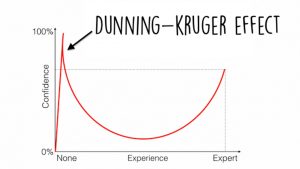 man’s mouth. It was a kind of disorder, that he couldn’t control himself once someone was mangling their words so much as to create a new dialect from ordinary utterances.
man’s mouth. It was a kind of disorder, that he couldn’t control himself once someone was mangling their words so much as to create a new dialect from ordinary utterances.
Being a citizen in the city meant that he would be confronted with surety on a daily basis, and he was constantly reminded of the man who had put lemon juice on his face and attempted to rob a bank. He had thought his face was invisible, and that meant he would not be recognized, even though he was a regular customer and lived less than four 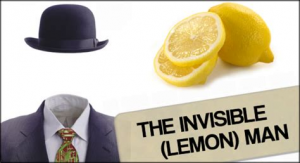 blocks away. When the police had come knocking he was incredulous. How did you know it was me, he had asked. I wore the juice.
blocks away. When the police had come knocking he was incredulous. How did you know it was me, he had asked. I wore the juice.
He liked to imagine that man’s life. He’d held down a job like anyone else, paid rent to the landlord and maintained a phone. Presumably he was knowledgeable enough to keep himself fed, although he might also have subsisted on fast food. Somehow, his logical skills were so weak that it never occurred to him, as he was walking down the street to the bank with his gun, that no one pulled away from him in horror. Did he wonder why no children pointed and stared, exclaimed  loudly, or threatened to tell their parents? What about the police he had passed. Didn’t he wonder why they didn’t at first startle and then look at him more closely with greater incredulity until they pulled their gun and followed their policy of fire-first-ask-later when they didn’t understand what they were looking at? What about the people in his building? Shouldn’t they have reared against the walls of the hallway as he passed, and if they recognized him by his clothing or way of walking, wouldn’t they address him by his name? Why did no one in the bank jump for the alarm or
loudly, or threatened to tell their parents? What about the police he had passed. Didn’t he wonder why they didn’t at first startle and then look at him more closely with greater incredulity until they pulled their gun and followed their policy of fire-first-ask-later when they didn’t understand what they were looking at? What about the people in his building? Shouldn’t they have reared against the walls of the hallway as he passed, and if they recognized him by his clothing or way of walking, wouldn’t they address him by his name? Why did no one in the bank jump for the alarm or  refuse to serve him? So many shops make such refusals when someone is missing a shirt or shoes, what about him?
refuse to serve him? So many shops make such refusals when someone is missing a shirt or shoes, what about him?
Didn’t he wonder why no one was aghast until he pulled out his gun and waved it around? Why did his lurid gesture at the security camera have to be accompanied by the expression on his face? Likely there were at least a hundred people who didn’t notice the unusual sight of a man walking out of his building, going down the street to the bank and entering it for business, even though the man didn’t have a face. What did he imagine they would see? That the back of his hood would appear? 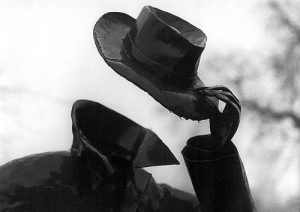 Or perhaps the wall and door behind him? Didn’t he think they would wonder why he’d never seen such a thing in the street before? Did he think he was the only one who thought to apply a child’s version of invisible ink to his face and that it would make him invisible? Likely every child older than four or five had thought of it, and those who immediately realized it was nonsense would never entertain the thought again. Those who did it, even if they were slightly dimmer, they would have checked their new lack of look in a mirror. How did he not think to check on what the invisible ink, the lemon juice when applied to paper and let dry, would do to his face?
Or perhaps the wall and door behind him? Didn’t he think they would wonder why he’d never seen such a thing in the street before? Did he think he was the only one who thought to apply a child’s version of invisible ink to his face and that it would make him invisible? Likely every child older than four or five had thought of it, and those who immediately realized it was nonsense would never entertain the thought again. Those who did it, even if they were slightly dimmer, they would have checked their new lack of look in a mirror. How did he not think to check on what the invisible ink, the lemon juice when applied to paper and let dry, would do to his face?
Who wouldn’t run 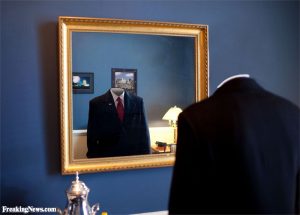 right to the mirror and watch as their face slowly faded into obscurity to be replaced by either the muscle and bone behind it, or the wall behind them? Somehow the would-be bank robber never thought to conduct even the simplest of tests of his method. Instead, he rubbed lemon juice on his face and ran right out of the house to the bank in order to earn his twenty years in prison. The sentence was more for not understanding the basic scientific method than the crime, for it was so ludicrous, so impossible, that no one could have believed it was real.
right to the mirror and watch as their face slowly faded into obscurity to be replaced by either the muscle and bone behind it, or the wall behind them? Somehow the would-be bank robber never thought to conduct even the simplest of tests of his method. Instead, he rubbed lemon juice on his face and ran right out of the house to the bank in order to earn his twenty years in prison. The sentence was more for not understanding the basic scientific method than the crime, for it was so ludicrous, so impossible, that no one could have believed it was real.
The conspiracy people no doubt thought they would hold that tidbit in mind, in case they needed to disappear. Like many of their most tenaciously-believed ideas, they would never think to submit it to the rigor of a test,  but instead they would recognize in the bank robber a fellow conspirator in their struggles. He would understand, from the safety of his cell, how a man might see a fake world all around him, and have to strike out on his own, a gold miner washing rich gold from his tin plate while those around him found nothing of value. The bank robber would know what it was like to struggle to wire the garage, change the oil in the car, install a new door, and why his wife had left. The secret group which was controlling everything the conspiracist did not understand had obscured knowledge of lemon juice as well, so even if the bank robber was behind bars, he’d heard the same call.
but instead they would recognize in the bank robber a fellow conspirator in their struggles. He would understand, from the safety of his cell, how a man might see a fake world all around him, and have to strike out on his own, a gold miner washing rich gold from his tin plate while those around him found nothing of value. The bank robber would know what it was like to struggle to wire the garage, change the oil in the car, install a new door, and why his wife had left. The secret group which was controlling everything the conspiracist did not understand had obscured knowledge of lemon juice as well, so even if the bank robber was behind bars, he’d heard the same call.
As he went through his ordinary life, he was surrounded by those people. Those who cursed out local transit, who hoarded guns like the British were coming, and were suspicious of everything around them including their own family. They were as liable to rob a bank and shoot innocent bystanders, and even as he laughed at the nonsense they were 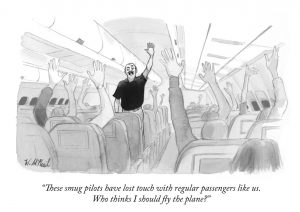 spouting—from their religious pamphlet stand beside the bank or knee-deep in water at the beach—he was leery of letting their ignorance infect him. Like a virus, their ideas of how the world worked were as unfounded as they were a slippage from reasoning. He would be better off laying on his lawn or throwing rocks at his own feet. How do they manage, he often wondered. How could they understand enough to turn a key in a lock, or choke the highways while they drove, or draw a paycheque from someone who thought enough of them to pay for their efforts? It was a good question for anyone.
spouting—from their religious pamphlet stand beside the bank or knee-deep in water at the beach—he was leery of letting their ignorance infect him. Like a virus, their ideas of how the world worked were as unfounded as they were a slippage from reasoning. He would be better off laying on his lawn or throwing rocks at his own feet. How do they manage, he often wondered. How could they understand enough to turn a key in a lock, or choke the highways while they drove, or draw a paycheque from someone who thought enough of them to pay for their efforts? It was a good question for anyone.
